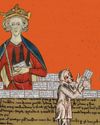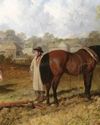
Matt Elton Your new radio series explores the 1943 Bengal famine, which is a subject that's both unfamiliar to a lot of people and the source of ongoing controversy. Can you give us a sense of the famine's scope and significance?
Kavita Puri The numbers are just huge. In 1943, as the Second World War was raging, a famine occurred in Bengal [a region now split between Bangladesh and the Indian state of West Bengal]. Low estimates are about 1.5 million deaths, with that figure going as high as 6 or 7 million. Although there's long been debate about its full extent, there is a consensus among academics that the death toll was at least 3 million. To put that in context, it's one of the largest losses of civilian life suffered on the Allied side - and yet this is a subject that's largely unknown in Britain. Even in India and Bangladesh, remembrance is complicated.
There is a lot of academic literature on the causes, and the most important contributors to the famine are widely debated, as well as questions of culpability. My purpose was very different. I wanted to understand why this subject has become largely overlooked, and its memory fraught, and to try to shift the lens to look at the humanitarian catastrophe in a different way by focusing on individuals who survived and lived through the famine. More than 80 years on, that generation - like the war generation - will soon no longer be with us. This is really the last chance to capture their voices. So I set out to do that, and to explore archives around the world for first-hand testimonies.
What do we need to understand about Britain and India and their relationship to make sense of what happened?
This story is from the {{IssueName}} edition of {{MagazineName}}.
Start your 7-day Magzter GOLD free trial to access thousands of curated premium stories, and 9,000+ magazines and newspapers.
Already a subscriber ? Sign In
This story is from the {{IssueName}} edition of {{MagazineName}}.
Start your 7-day Magzter GOLD free trial to access thousands of curated premium stories, and 9,000+ magazines and newspapers.
Already a subscriber? Sign In

Viking mussels
ELEANOR BARNETT digs into archaeological research to recreate a Viking-cum-AngloSaxon seafood dish from medieval York

Fingers, frog's and fairies
Fortune telling was all the rage in the 16th and 17th centuries, and practitioners would stop at nothing to tap in to the supernatural. Martha McGill tells a story of Highland seers, tarot cards and encounters with the spirit world

Nothing matches being with Alexander the Great on foot in the Hindu Kush
AT OUR LITTLE FILM COMPANY, MAYA VISION, we recently took the decision to digitise all of the rushes of our key films so that we could dispose of hundreds of boxes of tapes that had been kept in storage, throwing out stuff we thought we would never need again.

Library of the dead
Highgate Cemetery, created as a fashionable resting place for wealthy Victorian dead, is a veritable who's who of London's great and good. PETER ROSS roams the avenues of this most atmospheric necropolis

Slavery, exploitation and racism. These tragedies have long dominated histories of Africa. But there's another way to tell this story. And it's one that puts Africans right at the centre of their continent's extraordinarily rich and vibrant past
An 1414, in the Chinese city of Nanjing, a giraffe caused a stir. Amid a crowd of shocked, noble spectators, an official, leading the creature via a rope tied round its face, presented it to China's Yongle emperor. His officials said it was a qilin - an auspicious unicorn - which his sage governance had made appear.

England's forgotten hero
When the Hundred Years' War was reaching a climax, one man was fighting tenaciously to secure the English claim to the French crown. So why, asks Joanna Arman, is Henry V's formidable brother, John, Duke of Bedford, not better known?

HENRY III AND THE MAGNA CARTA THAT MATTERED
King John's sealing of a charter at Runnymede in 1215 is one of the most feted moments of the Middle Ages. Yet, writes David Carpenter, it was the charter issued by his son 10 years later that became fundamental to England's history

Gutenberg publishes a pioneering new book
‘The printing press triggers an information revolution

How empire ruptured rural Britain
We know that enslaved Africans and their descendants suffered in the distant colonies of empire. But, as Corinne Fowler explains, the colonial system also had dire impacts on people in the countryside of the 'motherland'

"I FELT VERY ALONE IN A WORLD GONE HORRIBLY MAD"
It was a moment of possibilities, dislocation and dread. Dan Todman tells the story of the 1.5 million urban Britons evacuated to the countryside at the start of the Second World War